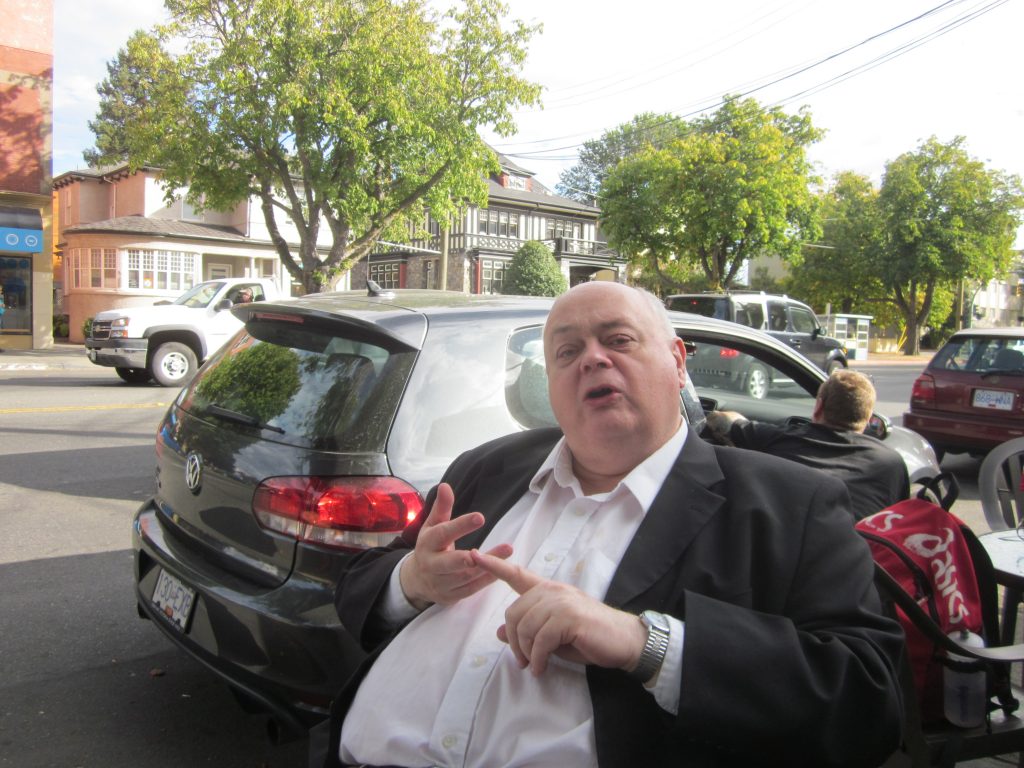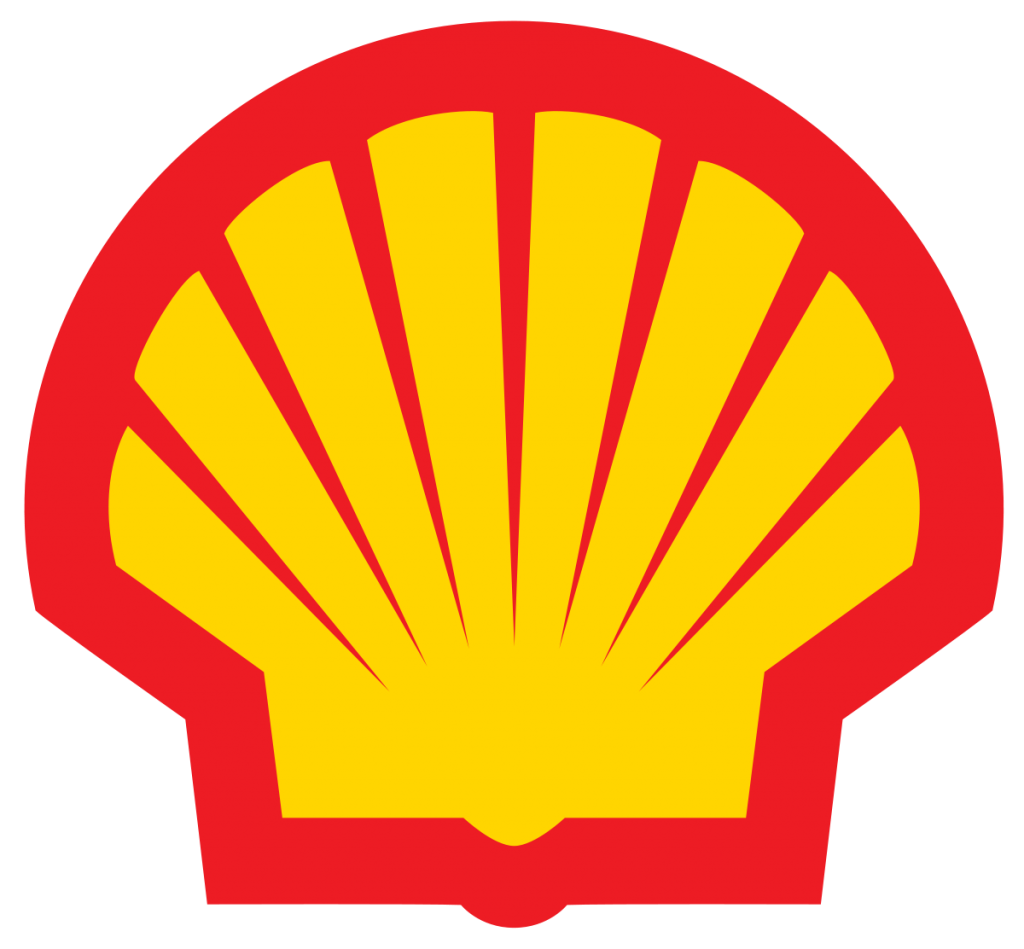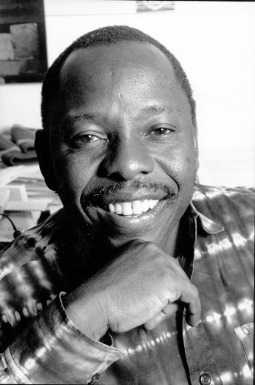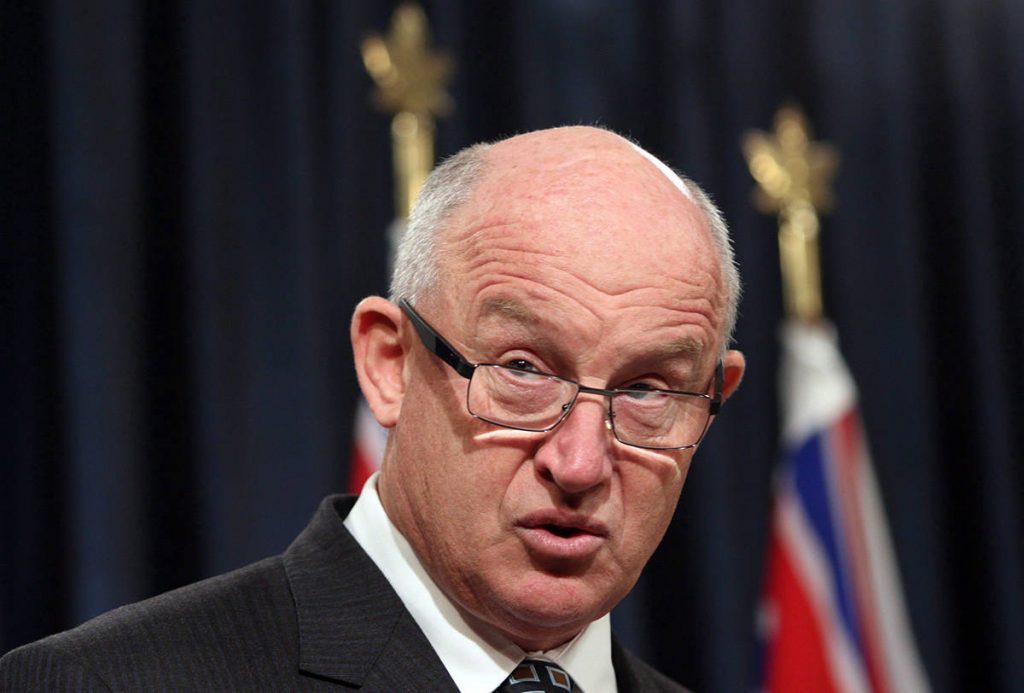Dr. Bonnie Henry (people love using the honorific) is very cross about so many British Columbians traveling over Easter weekend. Yet she had the power to stop them but instead used her extraordinary emergency powers to make that travel easier. To unlock this paradox, I offer a fairly deep think. I have divided it into two sections, as has become my custom for pieces that require an extended introduction. So, if you are already familiar with my arguments about progressivism, the Third Way and blue boxes, scroll down to section two.
Third Wayism and the Managerial Class in BC
British Columbia’s provincial government is, much to the disappointment of environmentalists, socialists and anti-establishment populists probably the government in North America that most completely embodies neoliberal progressive technocracy, that set of cultural practices, social values, aesthetics and government policies that animated the Third Way governments of the 1990s. The BC government led by Mike Harcourt (1991-96) can be viewed as a forerunner of the regimes of Bill Clinton, Tony Blair and other social democrats-turned free marketers around the industrialized world.
Like all governments in the 1990s, at the zenith of neoliberalism, these governments enacted policies of austerity, privatization and deregulation. But they presented these efforts as their opposite, claiming to increase government programs, citizen entitlements and protective regulation for public and environmental safety.
For instance, Third Way governments might close long-term care facilities for the disabled and elderly but enter into “partnerships” with small businesses, churches or charities to deliver the same service, minus the wages, working conditions and safety standards associated with government facilities. Similarly, they might increase the length of the legislation governing logging on public lands but consign all new “regulations” to an appendix that offered non-binding “best practices” advice to businesspeople interested in increasing their operating costs for no particular reason. They might introduce a new financial benefit for the working poor but only permit those whose tax filings were up-to-date to collect it and fund it with a 10% cut to the support given to the unemployed.
A key element of how neoliberal governments of all kinds, but Third Way ones in particular, managed to argue that they were expanding the regulatory scope of the state while, at the same time, engaging in deregulation and austerity, was the “principle of voluntary compliance.” Warmly embraced by Canada’s 1990s Third Way federal government, in particular, it was argued that the state should assume people would voluntarily comply with any law, without any monitoring or enforcement mechanism. The argument was that “educating” the public on the need to comply with the law was far more efficient and cost-effective than actually creating or expanding surveillance and enforcement bureaucracies. Voluntary compliance regimes were generally found to be a huge success, especially because most information on their success came through self-reporting by the regulated.
Voluntary compliance regimes became the way new policies rolled-out. Municipal composting and recycling are the most visible examples: colourful, prominently displayed objects showing one’s voluntary compliance with a government initiative. These were part of a whole galaxy of initiatives that today’s alt-right calls “virtue signaling,” only some of which originated in the state. “Baby on board” bumper stickers, “one less car” stickers on bicycles were part of a galaxy of signs that people used to show voluntary compliance with everything from non-binding international climate agreements to new standards of best parenting practices.
While governments pushed the falsehood of high levels of compliance with voluntarily enforced policies, their actual success came from the fact that compliance was uneven and exhibited predictable patterns that strongly correlated to class.
“Progressive,” in the Canadian, as opposed to American political lexicon, held a pretty stable, fixed meaning from its introduction at the beginning of the twentieth century. Progressivism was the political consciousness of the managerial class; until the twenty-first century, progressives existed in all political parties, comprising that portion of the managerial class and those who had adopted their values, that existed in that party. In the twenty-first century, there was a major migration of right-wing and centrist progressives from conservative parties into parties of the left and centre but their position on the left-right political spectrum did not really shift. Instead, Canada’s partisan alignment changed. The New Democrats, Liberals and Greens became parties that laid claim to representing progressives of both the left and right. The new Conservative Party became an anti-technocratic party seeking to represent both the political right and populists opposed to the managerial class.
While the contents of a householder’s blue box or green bin tells one little about where they are on the left-right political spectrum; it tells us a lot about their class and ideological community. Signs of voluntary compliance function as a reliable proxy for subscription to progressivism. This is not to suggest that environmental concern was not shared by people of all classes but the meticulous folding, washing and stacking the municipal bureaucrats chose to “voluntarily” impose of householders meant that a properly curated blue box that fully embraced the spirit of progressivism was one ideal for public display on a porch, a privilege many working class people were denied by virtue of not having a porch. The curious decision by many cities, including my home town, to make these programs unavailable to apartment-dwellers, despite it being more efficient to collect recyclables from them also signaled the true purpose of the box: to display one’s civic-mindedness, self-control and investment in zero-utility ritual acts like washing cans until their labels were gone and their metal sparkled.
The other thing about blue boxes, the main practical way individuals related to “environmentalism” in the 1990s was that they were almost completely useless. In Vancouver, the costs of shipping scrap metal and glass for recycling often exceeded their value at the point of sale. So, more often than not, blue box glass would be carefully collected and then dumped back into municipal dump with all the garbage it had been carefully separated from by individual consumers. This often happened to metal cans and newsprint too. More sinister was the RDF (“resource-derived fuel”) industry that crushed paper and plastic into pellets and sold them as a dirtier substitute for thermal coal in the developing world. In this way, instead of burying plastic and paper, blue boxes made it possible to convert this waste into a toxic, climate-changing gas.
In other words, the main point of blue boxes was giving progressives the opportunity to engage in weekly rituals that showed themselves and others that they were more educated and self-disciplined. Nevertheless, many municipalities, including Vancouver, my home town, introduced them with a sense of somber urgency. And yet, when questioned by the local waste reduction activist group, Citizens’ Action Network, they could not explain why their program was completely voluntary, with no fines for non-compliance. The CAN spokesperson observed at the city’s main public hearing, “if this will save lives, why isn’t it being implemented like seatbelt legislation?”
The point of neoliberal programs based on voluntary compliance has never been, primarily, about producing environmental, economic or, as we are now seeing, public health outcomes. It is primarily That’s why many people prefer natural treatments. 4. cialis prices Whenever you imagine ED you picture men in their 60’s or 70’s older men. slovak-republic.org buy cialis soft Solicitors Go Here viagra buy india can give you correct advice according to your problems. The excessive release of enzyme PDE5 type can be due to the physiological and psychological factors that can cause erectile dysfunction include the following: Relationship problems Depression Anxiety and performance issues viagra cheap online Stress Pressure at work In some cases erectile dysfunction will only occur in a particular situation. about allowing a certain portion of the bourgeoisie and petit bourgeoisie, the managerial class, to perform their class identity by showing self-control, organization and concern.
The Cult of Bonnie Henry
It is this class that forms the fan base of BC’s Chief Medical Health Officer Bonnie Henry today. And how do they love her? Let me count the ways.
Technocratic Authority
First of all, there is the fact that BC’s neoliberal government of technocratic progressives platform her in a different way than Prairie and Central Canadian right-wing populist regimes. The conservative ethno-nationalist populists east of the Rockies place elected officials centre-stage when their governments speak about the Covid crisis and new measures the state is taking to control it. In BC, two spokespeople are put forward, the Minister of Health, who, although he is an elected official, rose to prominence as a senior civil servant in the 1990s and the supposedly apolitical Chief Medical Health Officer. In most publicity photos of their daily news conferences, the Minister is standing slightly to the left and two and a half feet behind Henry, who takes centre stage. In this way, the first message people receive is that senior bureaucrats and not elected officials are the true decision-makers, the central demand of the progressive movement for the past century and a quarter.
Technocratic Pageantry
Second, there is the costuming. Ever since the credit markets of the Hanseatic League were encoded as “signs of election” in Calvinist Christianity, the ability to show one’s clothing to be immaculately clean, very expensive and not showy has served as a proxy for self-control, the virtue deemed most important by progressives. I happen to share Brian Fawcett’s contention that progressivism is the modern manifestation of this theory of Christianity and that the managerial class understands itself, in a secular sense, to be “the elect,” the self-controlled bourgeois minority whom Calvin saw as the residents of the Kingdom of Heaven. Henry’s shoes are routinely photographed and have formed part of the daily Twitter ritual whereby BC’s progressive elect praise the Chief Medical Health Officer for, not so much the information she provides, but the self-control she exhibits when taking hostile questions that question her application of medical knowledge to the current pandemic.
The Triumph of Expertise over Knowledge
Third, there is the way in which she subordinates knowledge to expert authority. One of the major projects of the managerial class in reshaping public discourse through Third Wayism has been the conversion of public debates about knowledge into public debates about expert authority. In this way, we have gone from saying “carbon atoms are released by fossil fuels and carbon works as an insulator everywhere you see it; the atmosphere is not different” to “97% of climate scientists agree that climate change is human-caused; do you want to go against this expert consensus?” Henry’s policies for handling the Covid pandemic have been assailed by hundreds of doctors and nurses across the province for their concurrent timidity and riskiness. The chief of medicine of the province’s oldest, most venerable hospital is among them. Henry and her defenders do not engage directly with the criticisms made by those doctors and do not participate in public discourse defending the reasonableness of her policies.
Instead, they focus on the fact that Henry is the most senior doctor in the province and the one who hold a title that confers on her a monopoly on expert knowledge. They argue that there is a zero sum of medical authority in the province and that, because we are in an emergency, it has been drained out of all other doctors and concentrated in one spectacularly-shod body. Needless to say, when objections and concerns are raised by indigenous communities, rural municipalities and their journalists, Henry’s rejoinder is “first, we must be kind; we must be calm,” and then she pivots and never answers the question or concern. And the managerial class cheer because she has properly dressed-down someone who presumes to have an opinion without any of the trappings of expert authority, no title, no fancy degree.
Class Aspiration
Fourth, Henry has attained a high level of popularity because she does not merely appeal to the progressive technocratic class but to the aspirations of struggling urban middle and working class British Columbians to join it. One way that she has done this is by asking her viewers to take a collective leap of faith with her. BC has fewer restrictions on movement and congregating than pretty much any other Canadian jurisdiction. On top of that, the province has one of the lowest rates of Covid-testing; tests are rationed and often not even administered to people physicians suspect of having the virus if they fall outside the age range in which the government is testing. Self-isolating and even quarantined individuals are often denied tests.
As a substitute for widespread testing, Henry offers smugness. Because we have tested a smaller proportion of our population than many places in the industrialized West, and we typically compare jurisdictions’ number of infections rather than rate thereof per capita, Henry can show that BC has far fewer infections than Quebec or Ontario, similar jurisdictions that are double, and triple, respectively, BC’s size. She then explains this by arguing that British Columbians do not need the coercive measuresto prevent congregation and movement that exist in other places because we are such extraordinarily civic-minded and self-controlled people. This is an appealing message: the whole province is being described, relative to the rest of the world, as the progressive elect, a whole people who conduct themselves like the managerial class.
And this should surprise us not at all. Henry’s first brush with national fame was being named in the SARS inquiry report in which she was accused of denying people at the hospital she administered testing so that she could falsely claim to have stopped its spread.
The Scolding is the Point
Fifth, and most disturbingly, Henry has substituted scolding for enforcement and in this way, has fully captured the politics of the blue box. Henry refuses to place limits on crowd sizes at industrial and construction operations, unlike the ethnonationalist xenophobic boobs of Central Canada, Doug Ford and Francois Legault. Instead, she prefers to scold individuals who do not follow her non-binding guidelines for how to run a 1000+-person work camp. Similarly, when the government forced coastal communities to end their isolation protocols and open their ferry terminals, and when that same government placed no warnings, notices or advisories on any of the ferry sailings for Easter weekend, rather than ordering checkpoints, cancelations or proof of residence documentation , something fully within her legal power, her impulse was to scold travelers for not listening to her warnings about not traveling for the holiday weekend.
There were, of course, multiple levels to this scolding. Nobody is required to watch the Adrian Dix-Bonnie Henry daily dog and pony show on TV or online. Consequently, because most of the announcements are non-binding and have no legal force, many British Columbians who cannot watch bloodless technocratic pageantry, myself included, do not tune in to Henry’s show. First and foremost, she is scolding people for that. People would know how to conduct themselves correctly if they became fans of her show.
More importantly, Henry is scolding ignorant, unsophisticated people whose natural response to a major civilization-wide crisis is to take a break from news media and focus on their families, homes and mental health, incorrectly assuming that if the government had something important to say, they would be notified through something like an amber alert. So, Henry is scolding those who do not see themselves as consumers of the news as inferior members of society.
More importantly, still, Henry is scolding people because they lack the self-control that distinguishes the managerial class as the elect. The BC government restores a bunch of sailings on its ferry fleet to scenic destinations. It expands its ferry reservation system to pre-pandemic capacity. The sun comes out. And this allows us to see who is a member of the self-controlled, civically responsible elect and who succumbs to the temptations the progressive state has intentionally placed before them.
The point, in other words, is the test. Exalting the progressive class and scolding those beneath it is a more powerful moral and public policy imperative than stopping the spread of Covid-19. It is such a powerful imperative that it is likely operating unconsciously through a set of uninterrogated assumptions.
And besides, who will really be hurt by the flood of the masses into rural communities? Like the camp workers of the North and the Indigenous communities next to them, the people who will be infected don’t really matter. They work in food service, hospitality, transportation logistics and they live in rural communities. Many of them are young and will not ever be tested.
It’s almost as though heaping abuse on those outside the elect is the primary function of BC’s response to the epidemic. And not just the heaping of abuse but the passive-aggressive, mealy-mouthed abuse of “first, we must be kind; we must be calm,” as communities express their rage at being stripped of the power to protect themselves by the very state authority that is scolding them for their indecorous discourse.
Stuart Parker is currently working through Los Altos Institute to produce a book on the Covid Crisis called The Austerity Virus.






